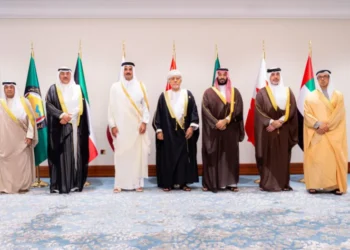S&P Global Ratings has upgraded Ghana’s foreign currency issuer credit rating from ‘SD’ (Selective Default) to ‘CCC+’, signaling renewed confidence in the country’s economic recovery path.
This comes after significant milestones in Ghana’s domestic and external debt restructuring efforts and a gradual improvement in macroeconomic fundamentals.
The rating agency’s latest move reflects Ghana’s resilience in navigating through a tough period of fiscal stress, triggered by the twin effects of the COVID-19 pandemic and global economic disruptions. In its May 9, 2025, report, S&P Global affirmed Ghana’s long- and short-term local currency ratings at ‘CCC+/C’, with a stable outlook.
“This rating action reflects progress made in Ghana’s debt restructuring, improvements in macroeconomic conditions, and the country’s strengthened external liquidity position,” S&P Global stated. The stable outlook suggests that no immediate downgrade is expected, provided fiscal and structural reforms remain on track.
Debt Restructuring Progress Bears Fruit
Ghana’s journey out of default began with the successful completion of the domestic debt exchange programme and significant headway made in talks with external creditors. The country also concluded a Eurobond exchange in October 2024 and signed a Memorandum of Understanding (MoU) with its bilateral creditors under the G20 Common Framework in January 2025.
These developments have helped Ghana reprofile its debt, reduce interest burdens, and restore some degree of market confidence. The revised ‘CCC+’ rating now better reflects Ghana’s improving creditworthiness and capacity to meet near-term external obligations.
S&P noted that Ghana’s external indicators have strengthened in recent months. This includes a notable increase in gold export earnings and a steady rebuilding of the country’s foreign exchange reserves. The Bank of Ghana’s efforts to stabilize the currency and curb inflation have also played a vital role in supporting macroeconomic stability.
The cedi, which depreciated significantly in 2023, has shown signs of resilience in 2025, trading around GH¢14 to the dollar compared to over GH¢17 in previous months. The stronger local currency has helped reduce import-related inflationary pressures, contributing to a fall in inflation to 21.2% — the lowest in eight months.
Fiscal Reforms Underway
Finance Minister Dr. Cassiel Ato Forson has attributed the economic turnaround to disciplined fiscal management and coordinated policy efforts. According to him, the government is committed to structural reforms that address Ghana’s economic vulnerabilities.
“These gains are not short-term fluctuations. They are the result of robust planning, targeted interventions, and a strong commitment to restoring investor confidence,” Dr. Forson said during a recent policy briefing.
The government is currently implementing a series of fiscal consolidation measures aimed at narrowing the budget deficit, improving revenue mobilization, and cutting down on non-essential expenditures. These reforms are aligned with the conditions of the International Monetary Fund’s $3 billion Extended Credit Facility programme.
Risks Remain
While the credit rating upgrade is a major achievement, S&P Global Ratings also sounded a note of caution. The agency warned that Ghana’s rating could face downward pressure in the next 12 to 18 months if fiscal performance weakens or financing conditions tighten again.
High debt service costs continue to be a concern, and any delays in restructuring remaining commercial debt or slippages in fiscal targets could undermine the country’s fragile recovery. There is also the lingering risk of holdout creditors disrupting the restructuring process, although S&P believes this risk is mitigated by the advanced stage of negotiations and legal clauses embedded in the restructured bonds.
Ghana’s upgraded rating marks a critical step toward rebuilding its economic credibility. With the worst of the debt crisis seemingly behind, the government now has a window of opportunity to deepen reforms, stimulate growth, and position the country for long-term fiscal and external sustainability.
However, continued vigilance is needed. As the global financial environment remains uncertain, Ghana must stay committed to transparency, accountability, and prudent economic management to avoid slipping back into distress.
The international community, including multilateral partners and private investors, will be closely watching how the country navigates this next phase of its economic recovery.
READ ALSO: Powering Ghana’s Future with Sustainable Electricity



















